Managing the financial aspects of a Homeowners Association (HOA) is like steering a ship through financial waters. Without proper guidance, things can quickly go off course, resulting in unplanned expenses and dissatisfaction among residents. The role of financial management in HOAs cannot be overstated. It’s about keeping everything on track, ensuring bills are paid, funds are well-allocated, and future plans are set without a hitch. By focusing on sound financial practices, your HOA can navigate challenges more smoothly and foster a prosperous community.
Financial mismanagement can lead to pitfalls that may disrupt community harmony. From overlooked costs to poor budgeting, the consequences of missteps can be far-reaching. Addressing these issues with diligence not only preserves the community’s financial health but also strengthens trust among residents. It’s crucial to equip your HOA with the right strategies to avoid these common pitfalls and create a secure environment for everyone involved.
Understanding Financial Management in HOAs
Financial management within an HOA involves a range of responsibilities that keep the community functioning smoothly. It includes everything from preparing budgets, collecting dues, and managing expenses, to ensuring that there’s a healthy financial reserve for unexpected repairs or enhancements. These duties might seem straightforward, but without careful oversight, they can lead to complications.
Here’s a glimpse into why these elements are important:
– Budget Preparation: Developing a detailed budget helps anticipate yearly costs and guides decision-making. Budgets should reflect both regular maintenance and potential upgrades or repairs.
– Dues Collection: Timely collection of dues ensures that the community has enough cash flow to meet its obligations.
– Expense Management: Carefully tracking expenses prevents overspending and ensures that funds are used effectively.
– Financial Reserves: A well-maintained reserve fund acts as a cushion for unpredicted expenses such as natural disasters, ensuring the community’s wellbeing isn’t jeopardized by sudden financial strain.
Mismanagement in any of these areas can have a direct impact on the community. For instance, if an HOA fails to collect dues promptly, it may struggle to cover basic maintenance services, leading to dissatisfaction among residents. An example of this could be a community in Northern California faced with unexpected plumbing issues and without sufficient reserves to cover immediate repairs. Consequently, this can diminish confidence in the HOA’s leadership and its ability to manage community funds effectively.
Careful, proactive financial management helps prevent these issues, ensuring that the HOA can meet its goals and provide quality service to its residents. Understanding and implementing these practices strengthens the community, providing a stable foundation as the neighborhood continues to grow and flourish.
Common Financial Mismanagement Issues
When handling the finances of an HOA, certain mistakes can be more frequent than one might think. These errors, while unintended, can potentially throw a community into disarray if not addressed quickly. Typical missteps include inadequate budgeting, where the needs of the community aren’t fully factored in, or overlooking smaller expenses that, over time, build up to a considerable amount. These lapses aren’t just minor hiccups; they can lead to bigger issues like deferred maintenance or insufficient amenities, which ultimately impact the residents’ quality of life.
For example, imagine a community in Northern California that underestimated landscaping costs, leading to a poorly maintained common area. Residents become dissatisfied, voicing their concerns and questioning how dues are spent. This scenario illustrates how a seemingly small oversight can fan out into larger dissatisfaction and disrupt the neighborhood dynamic.
To prevent these issues, it’s important for HOA boards to put practices in place that anticipate common pitfalls. Learning from other communities’ experiences can create valuable lessons and promote a proactive approach to financial oversight.
Strategies for Preventing Financial Mismanagement
Effective prevention of financial mismanagement begins with strategic planning and transparent policies. Here are some approaches that can help set the right course:
1. Accurate Budgeting and Planning: Start with a realistic budget that accommodates all possible scenarios. Factor in both fixed expenses like regular maintenance and variable costs such as unexpected repairs or upgrades.
2. Regular Audits and Reviews: Schedule consistent financial audits to identify discrepancies early on. These reviews help fine-tune budgets and make room for adjustments before major missteps occur.
3. Open Financial Communication: Sharing financial statements with community members fosters transparency. When residents understand where their money goes, trust builds, and accountability becomes a community affair.
Choosing the Right HOA Management Partner
When considering how best to manage an HOA’s finances, partnering with a professional firm offers numerous advantages. Such firms bring expertise and objectivity to the table, handling everything from financial planning to detailed accounting. They ensure the community’s funds are managed efficiently, reducing the risk of human error.
A professional management firm can help:
– Develop a tailor-made financial strategy that aligns with the community’s unique needs.
– Monitor financial health continuously, identifying and rectifying any potential issues.
– Offer guidance on regulatory and compliance matters, keeping the HOA in good standing.
By seeking a partner proficient in managing financial aspects specifically for HOAs, the community benefits from expertise that enhances decision-making and solidifies fiscal health.
Safeguarding Your Community’s Future
Financial security is at the heart of a thriving community. This means every decision about the association’s finances plays a crucial role in shaping its future. By implementing best practices, learning from past hiccups, and seeking external expertise when needed, HOAs can maintain their financial health and continue serving their residents effectively. Reinforcing a culture of accountability and transparency within the community ensures that finances are handled with care, setting the stage for a promising future and a peaceful, well-loved neighborhood.
For HOAs looking to keep their communities financially sound and well-maintained, planning ahead makes all the difference. Gain peace of mind with the right support in financial management for HOA in Northern California. Trust AMC to guide your board with expert oversight and a personal touch every step of the way.




